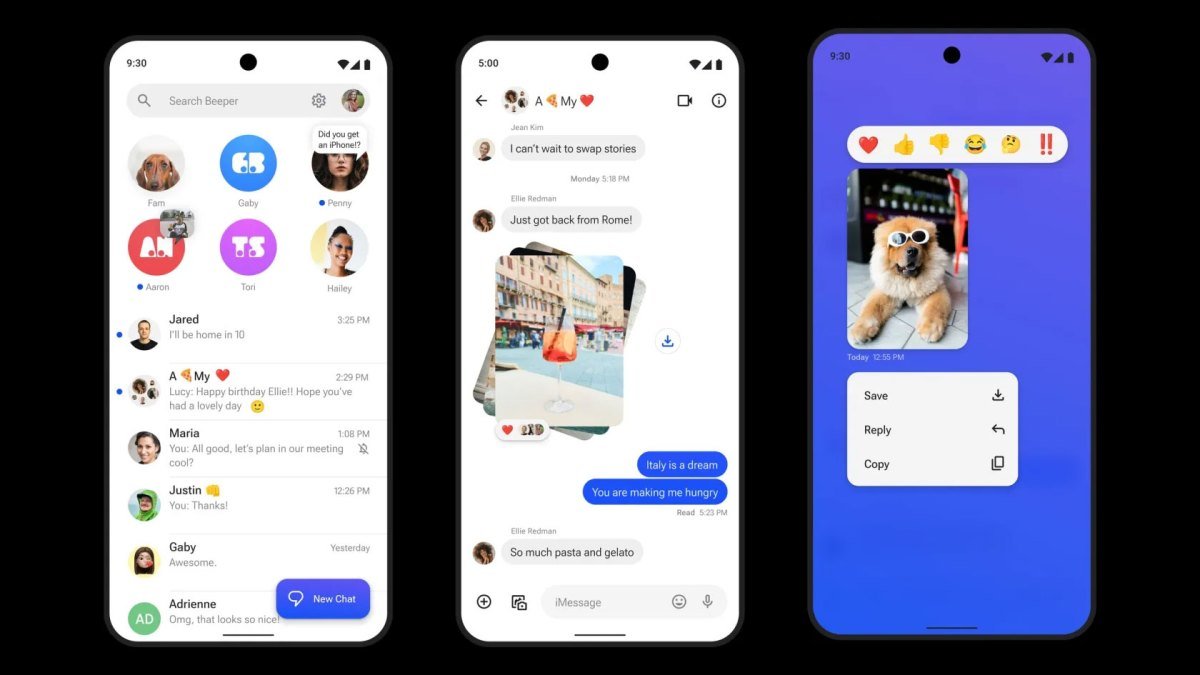A few days ago, the mobile app Beeper Mini went back into operation after an attempt by Apple to shut down its service that brings iMessage’s blue bubble texts to Android users. Now, Apple is again targeting Beeper’s users, the company claims in a post on X, by “deliberately blocking iMessages from being delivered to ~5% of Beeper Mini users.” But this time around, Beeper says it has a fix for the problem: simply uninstall and reinstall the app.
It also noted it’s working on a broader fix for this issue but it’s not ready as of yet.
Beeper Cloud users were also impacted, the company’s post said, referring to its original messaging app aggregator, but said those users could contact Beeper Help for a fix as well.
Apple appears to be deliberately blocking iMessages from being delivered to ~5% of Beeper Mini users. Uninstalling and reinstalling Beeper Mini fixes the issue. We won’t have a fix tonight, but we’re working on it. https://twitter.com/onbeeper/status/54464778
Beeper CEO Eric Migicovsky tells us that Beeper Cloud is now fixed and Beeper Mini is also “almost fixed.”
The startup has engaged in a heated battle of whack-a-mole with Apple since launching its iMessage-on-Android solution just last week. Using new technology that reverse-engineered the iMessage protocol, Beeper introduced an app that allowed Android users to chat with iPhone users as if they were also on iMessage’s platform. This included registering their own phone number from their Android phone with iMessage.
But although Beeper believed Apple would not be able to shut its service down, as Beeper Mini users communicated directly with Apple’s servers, just as iPhones do, Apple quickly reacted on Friday to put an end to Beeper Mini’s operation. The startup didn’t give up though. This week, it rolled out a fix that once again allowed Android users to send iMessages, but this time only by authenticating with their Apple ID.
Apple’s move to shut down Beeper’s new app caught the attention of legislators, as U.S. Senator Elizabeth Warren called out the tech giant for shutting down the app, adding that, “Big Tech executives are protecting profits by squashing competitors. Chatting between different platforms should be easy and secure.”
While Beeper claims its service is end-to-end encrypted, just as iMessage is, Apple suggested that its techniques posed a security risk for its users. This necessitated it “taking steps” to protect our users by blocking techniques that exploit fake credentials in order to gain access to iMessage,” Apple said in a statement shared with the press.
Beeper then challenged Apple to agree on a third-party security audit of its service to allay the tech giant’s fears.
Founded by Pebble smartwatch founder, Eric Migicovsky, the startup originally was working on a multi-service messaging app aggregator, but launched Beeper Mini to leverage the new technology focused specifically on bringing iMessage to Android users for $1.99 per month. As a result of Apple’s meddling, leading to Beeper Mini’s instability, the startup made its new app free for Android users for the time being.








